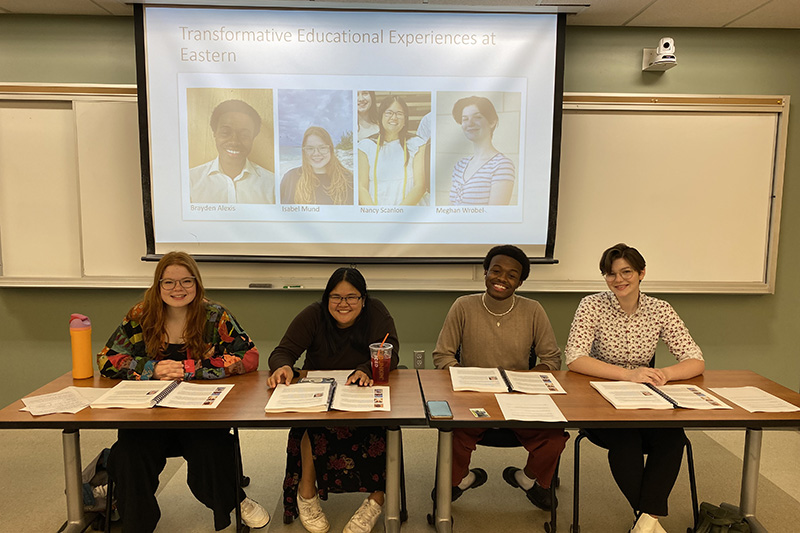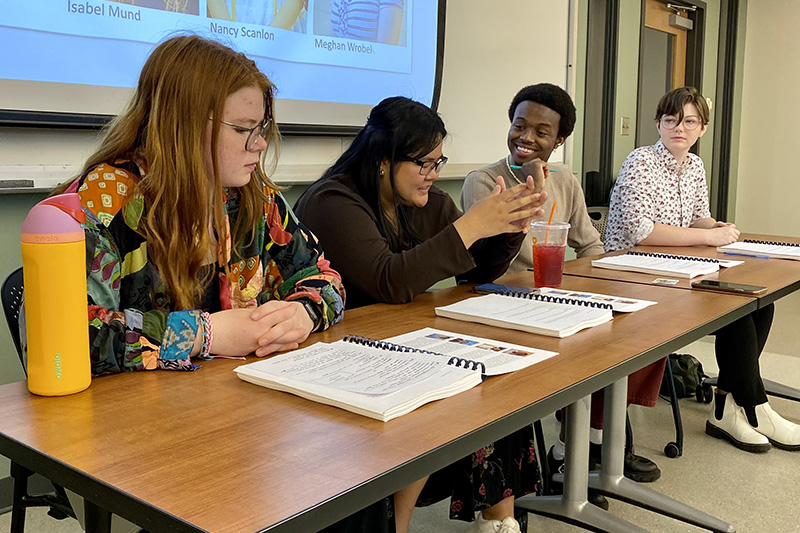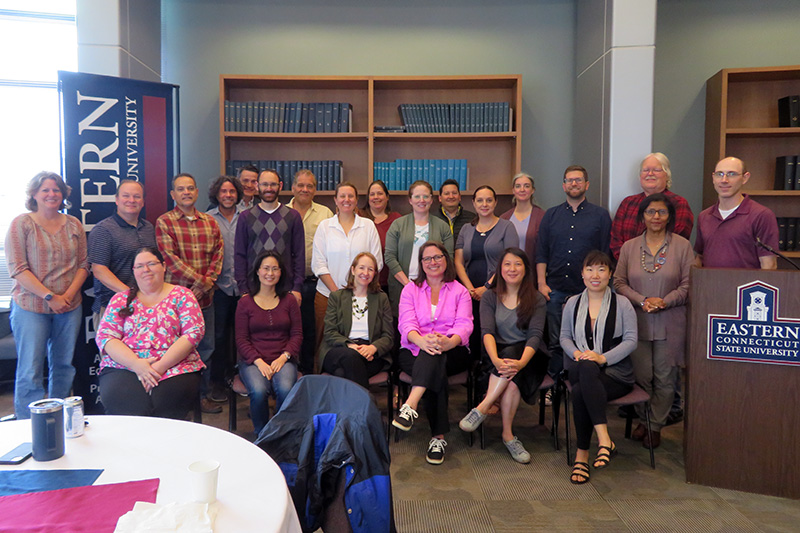- Apply
- Visit
- Request Info
- Give



Published on June 13, 2023

Twenty-six faculty at Eastern Connecticut State University sat in a classroom on June 6 to hear advice from a panel of four undergraduates on how they can make their courses appealing and how to communicate better with students.
The role reversal was part of a weeklong workshop for faculty who are preparing courses for the new Eastern Liberal Arts Core curriculum, which will be offered starting in fall 2024.
The new curriculum is focused on high impact learning practices, said Courtney Broscious, associate professor of political science, who organized the workshop. Faculty attending focused on communication, learning outcomes and assignment design.
The four students who offered advice, all orientation counselors this summer, had plenty to say.
“Remind students their experiences at college are just as important as class,” said Brayden Alexis, a junior psychology major.
“If you have an 8 a.m. class, remind students to eat afterward because they will forget,” he added.
“Students forget to take personal time,” agreed Meghan Wrobel, a junior art major who described being on the go from 8 a.m. to 10 p.m. some days.
Getting students to work together is important and lessens competition among peers, said Isabel Mund, a senior biology major. “I like it when we work as a community,” she said.
Personal feedback is extremely important, the students agreed. A one-on-one conversation with a student about how they are doing in a class or notes from a professor that show a paper was carefully read are welcome, too, they said.

Admitting failure makes faculty seem more accessible, the students said. Alexis described this as “the idea that my professor can tell me about a time when they were an undergraduate and did poorly on a course — when their path wasn’t perfect,” which bolsters students’ confidence that they can struggle and still succeed later, he said.
Welcoming groups to office hours is helpful, too, said Nancy Scanlon, a senior communication major. Going alone to see a professor can be intimidating, she said.

Class discussions are best when students are facing each other in a circle and the faculty facilitates the talk, making sure everyone gets heard, the students said. The students said they prefer getting do-overs on papers rather than submitting multiple drafts.
“How do faculty get students to read the required material?” asked business administration Professor Emiliano Villanueva. Breaking up the material and having groups present on their parts was one suggestion. Audio or video versions of books are available for students who don’t absorb text easily, said Alexis, who uses them.
The five-day planning institute also included speakers from other universities and the American Association of Colleges and Universities. It was funded by a Davis Educational Foundation Grant. Faculty will be submitting their new course plans over the next year in preparation for the fall 2024 curriculum roll-out.
Written by Lucinda Weiss